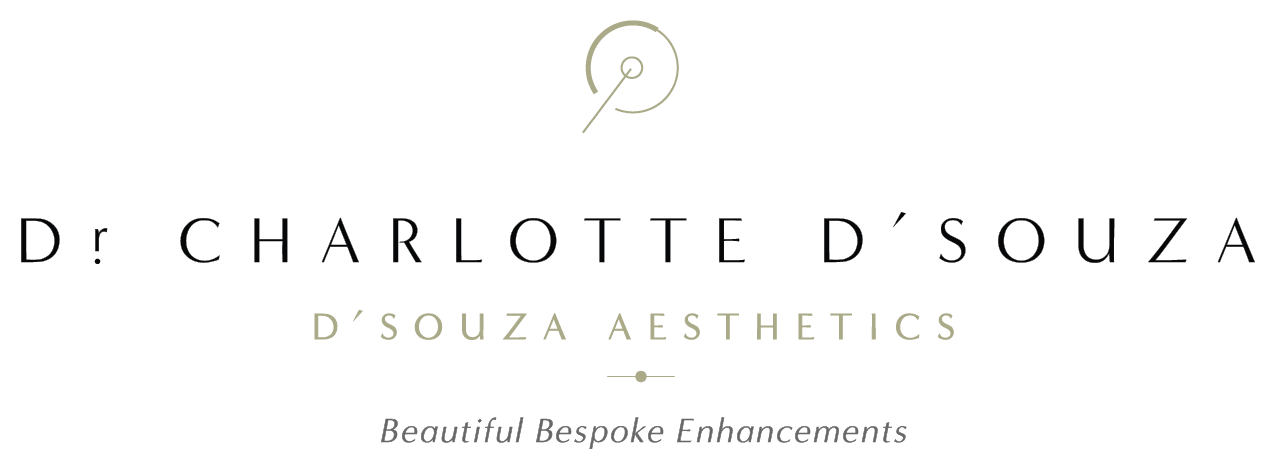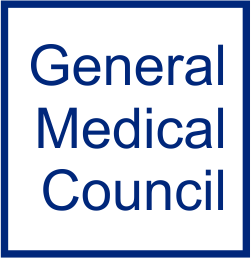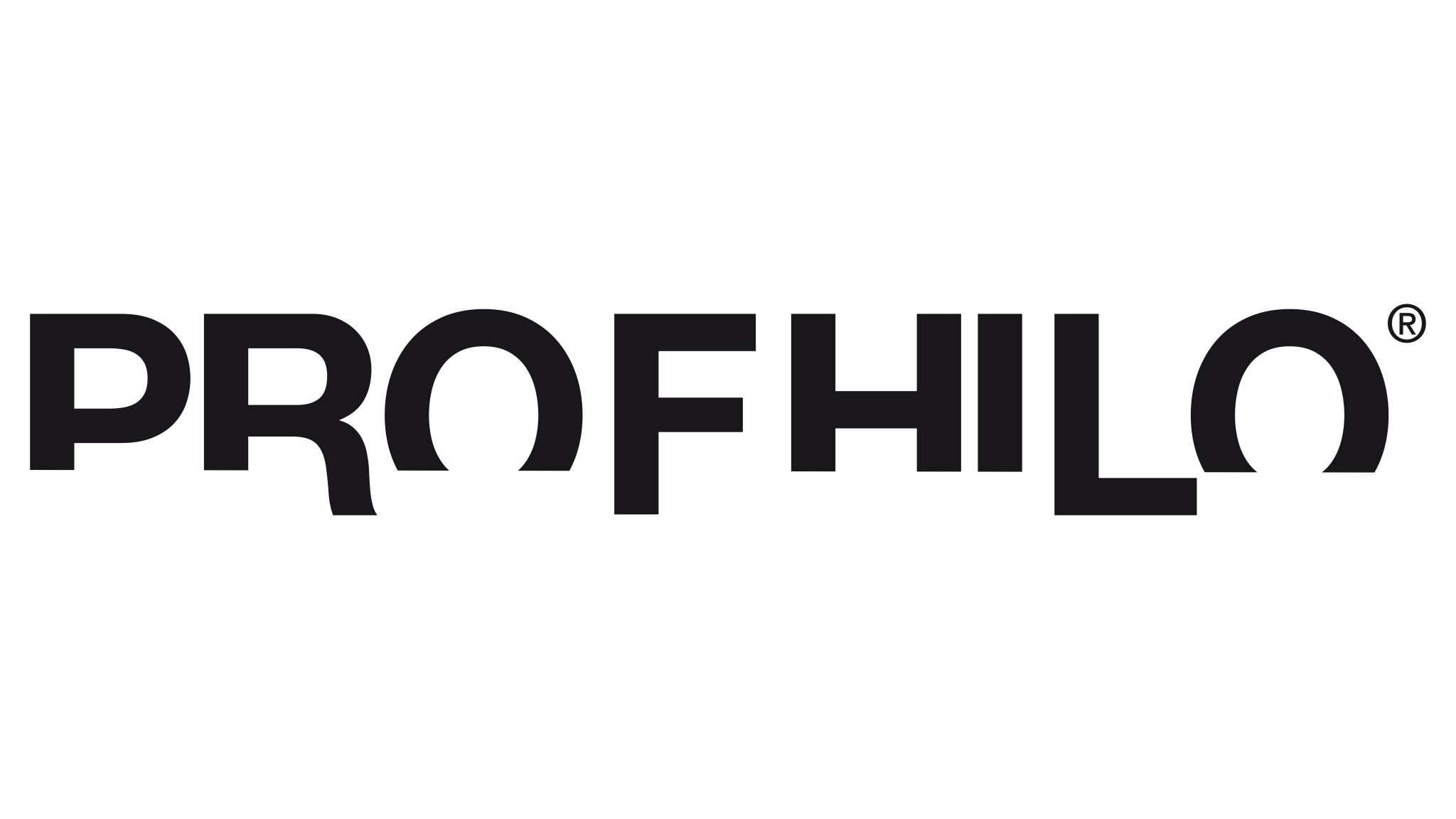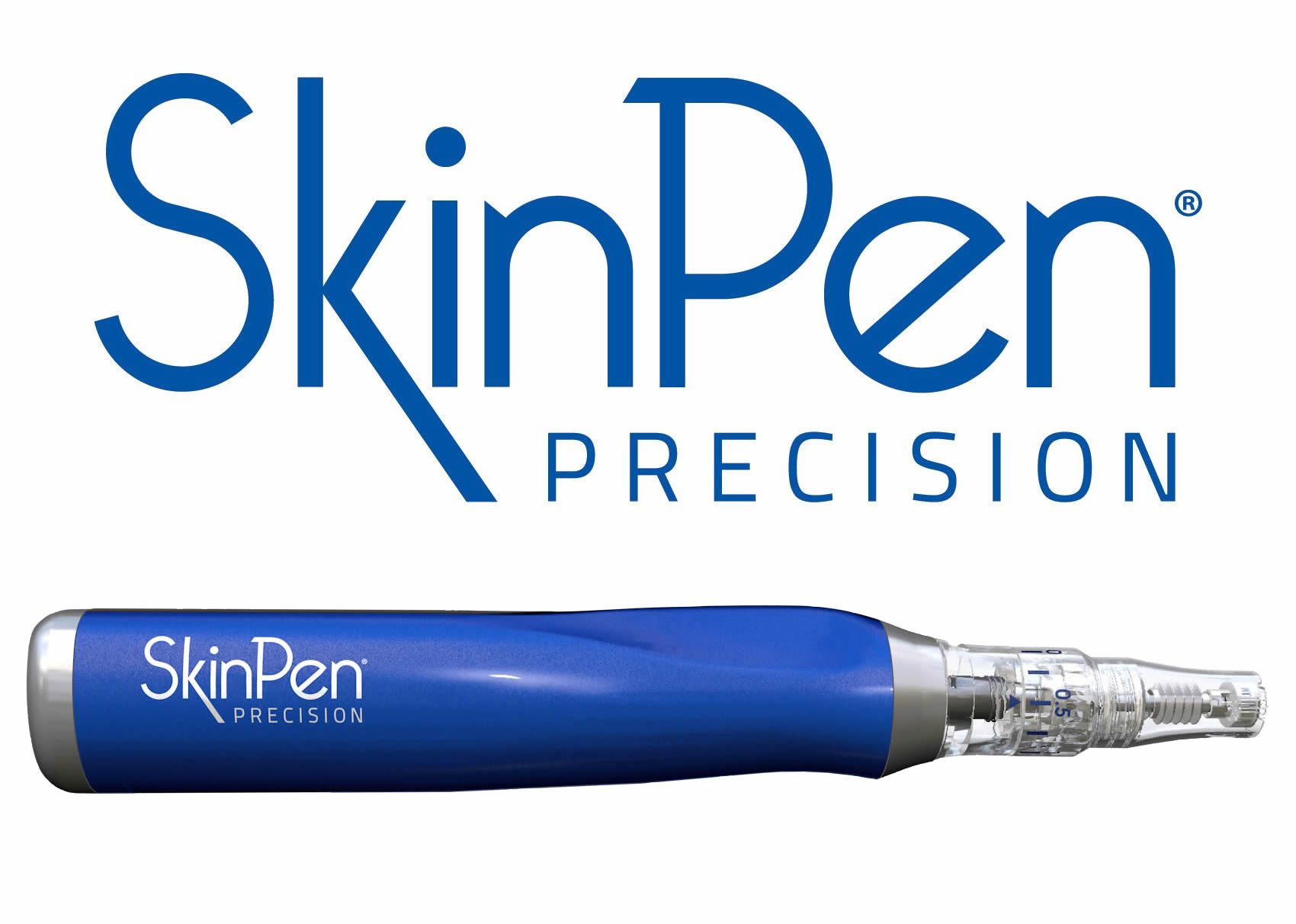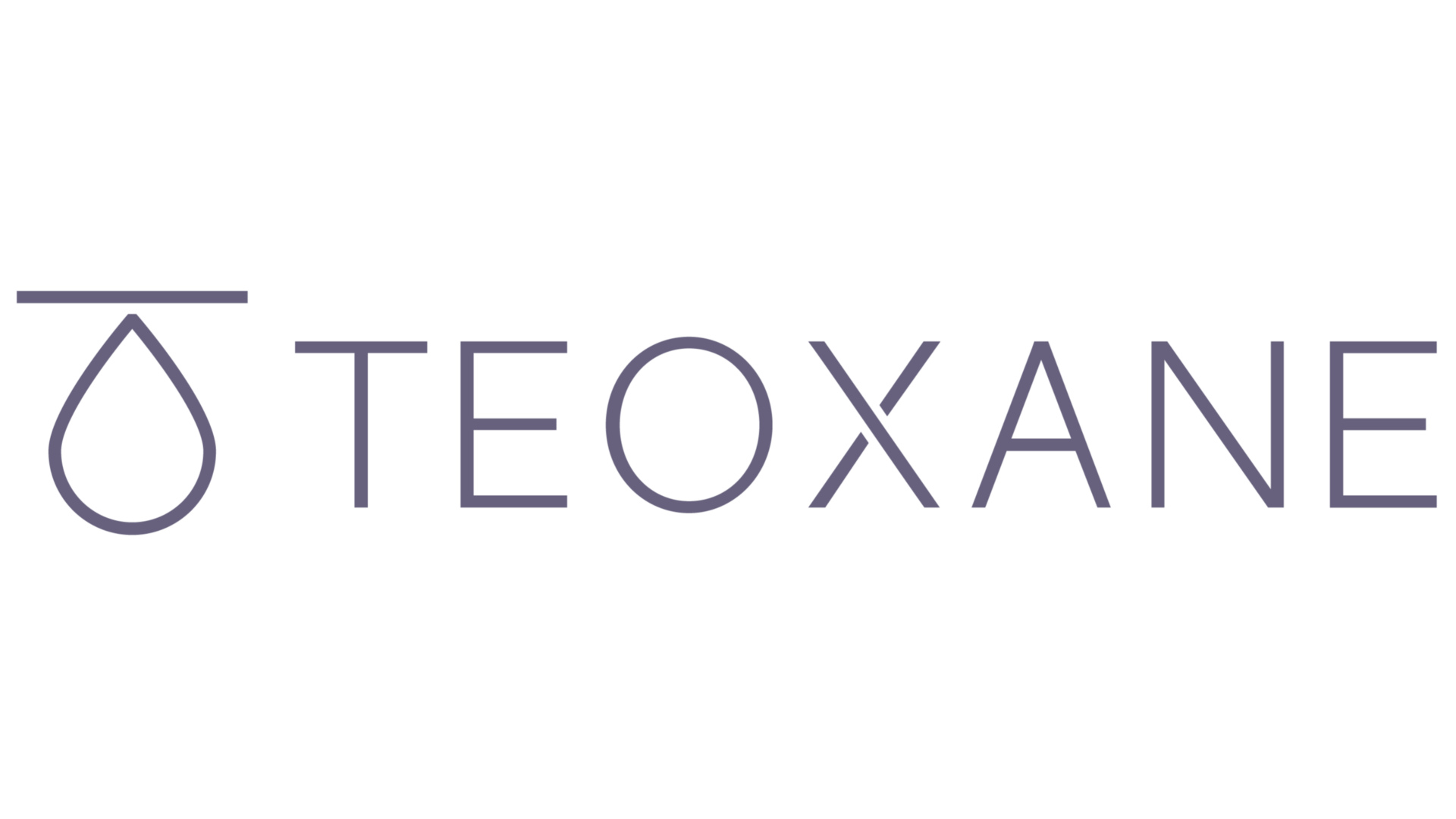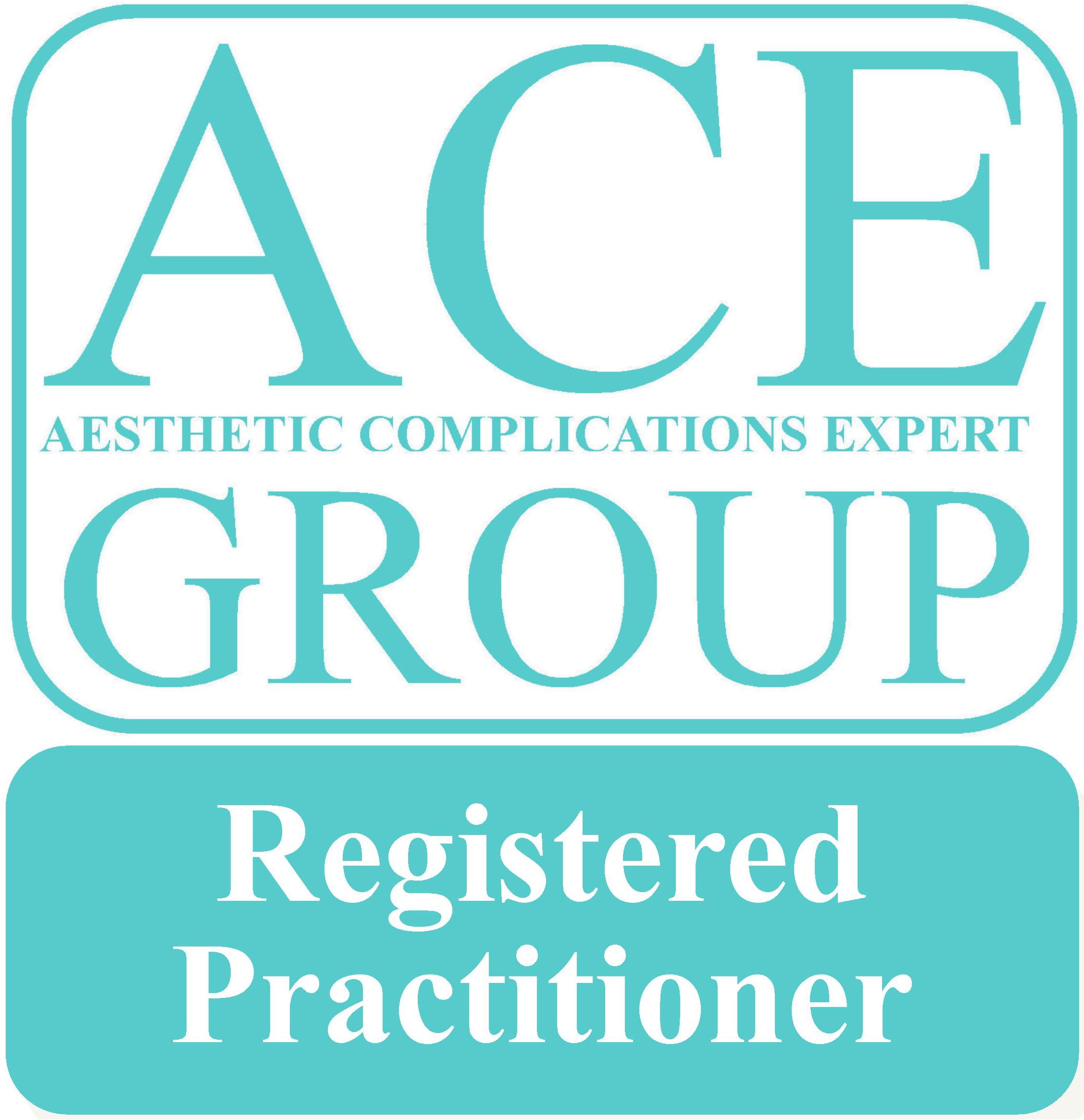Menopause is, without doubt, a very challenging time for every woman. It normally occurs between the ages of 45 and 55, causing vital hormone levels – oestrogen, progesterone and testosterone – to fluctuate, which leads to a number of physical and mental changes.
This hormonal fluctuation has a huge impact on the body and affects absolutely everything – energy, sleep, libido, mood, digestion, memory and, of course, the skin, which is your biggest organ.
Menopause-related skin changes don’t necessarily happen overnight. At the early stages, some women may notice that their skin loses firmness and becomes more prone to breakouts. Skin that was previously balanced might start to get dry or show oily patches. As time goes on, skin appears thinner, more saggy and can develop other conditions, such as hyperpigmentation or rosacea.
Most of these changes are the result of a reduction in oestrogen levels. Oestrogen is the hormone that preserves your skin’s youthful quality, keeping wrinkles at bay. When oestrogen levels drop during menopause, it accelerates the ageing process. As a result, your skin develops more fine lines and wrinkles, loses hydration and takes longer to repair itself. Less oestrogen can even make your skin more vulnerable to the sun’s harmful UV rays.
Another contributor to the decrease of firmness and elasticity in your skin is collagen. Collagen is the protein that keeps your skin plump and glowy, providing structure to your skin, bones, tendons, fibrous cartilage, connective tissue and teeth. Collagen production is strongly related to oestrogen deficiency. When your oestrogen levels drop, your collagen production plummets too, speeding up wrinkling and sagging in your skin.
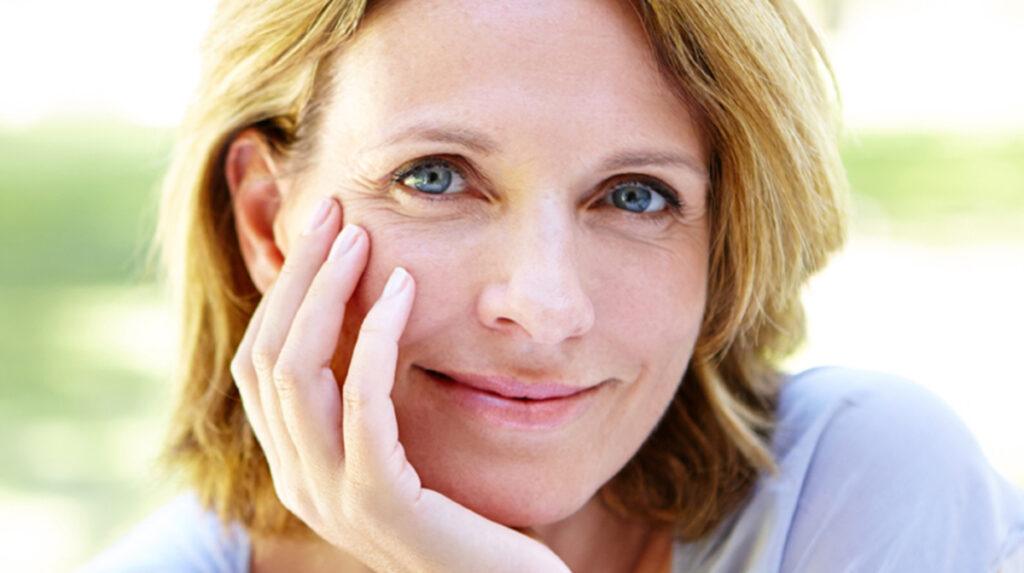
Despite the significant hormonal changes that take place during menopause, the skin ageing process is also greatly influenced by other environmental factors and a decline in your body’s metabolism.
Nowadays, however, there are many different ways you can retain your skin strength and suppleness, so you can minimise the effects caused by menopausal changes. From scientifically-formulated skin care to injectable treatments, or a combination of both, you can create your own anti-ageing skin regime to help you maintain your skin’s youthful appearance during the menopause and beyond.
My top 4 tips to boost your skin’s health during and after menopause are:
- Professional skin care
It is recommended that you seek professional advice as soon as you start noticing any signs of deterioration on your skin, particularly for lack of elasticity, increasing dryness, and more noticeable wrinkles. You want to have the right skincare protocol for your type of skin to target the symptoms.
When choosing your skincare products, there are a number of active ingredients that are a must-have for your skin during menopause and afterwards:
Retinoids & Retinol
Retinoids are a derivative of vitamin A, the queen of vitamins when it comes to anti-ageing. Retinoids help promote skin cellular renewal in your body. This means that they can encourage dead and dying skin cells to slough away from the surface and stimulate new skin cells, accelerating the appearance of new, smooth, clear skin. Retinoid creams and gels are only available by prescription. They can be harsh and very drying to the skin, so it is best to consult with your doctor to see if they are suitable for your skin.
Retinol is one specific type of retinoid and commonly sold over-the-counter. The difference is that retinol products contain a lower concentration of the Retinoic Acid ingredient than retinoid products. It therefore is gentler on the skin but takes longer to work (6-12 months vs 6-8 weeks).
You can find out more about retinoids and retinol on my blog – Retinoids vs Retinols – what’s the difference and when to use each.
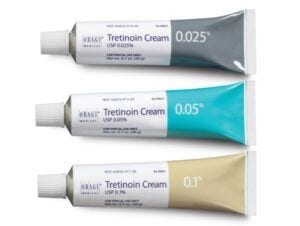
Peptides
Peptides are short chains of amino acids, which are the building blocks that make up proteins in your body. These proteins include collagen, elastin and keratin, which form the foundations of your skin and are responsible for its texture, strength and resilience.
In skincare, peptides are a crucial ingredient for anti-ageing. Their job is to promote the production of collagen, elastin and keratin, and as a result, help rejuvenate skin. There are different types of peptides to target different skin concerns, from wrinkle reduction or damaged skin barrier to loss of firmness and hydration. A good product should include several types of peptides to help repair skin on all levels.
L-ascorbic acid
This is the active form of topical Vitamin C and therefore, a potent antioxidant. When used in skincare, L-ascorbic acid is a greatsoothing agent, helping you improve the appearance of signs of ageing and stimulate your skin’s natural regeneration process.
Products containing L-ascorbic acid are best known for their brightening properties, giving your skin a youthful glow.
L-ascorbic acid is also a key ingredient to maintain a healthy skin barrier. It neutralises free radical damage and protects skin against UV light and other environmental aggressors, as well as blocking abnormal production of pigmentation to even skin tone and fade dark spots.
As a doctor and authorised physician of Obagi skincare, I always look for products that are scientifically-backed and provide not just noticeable results, but a long-term improvement in the health, quality, and condition of skin. Obagi’s skincare range has been formulated to give your skin the support it needs as it grows older.
The Obagi Nu-Derm System is my preferred choice for conditions that result from menopausal changes, such as ageing, hyperpigmentation, and dry skin, as well as sun damage. It’s formulated with prescription 4% hydroquinone and tretinoin, meaning that it’s aimed at transforming your skin’s appearance and helping correct visible signs of ageing, such as dark spots, discoloration and rough skin. You can shop the system here.
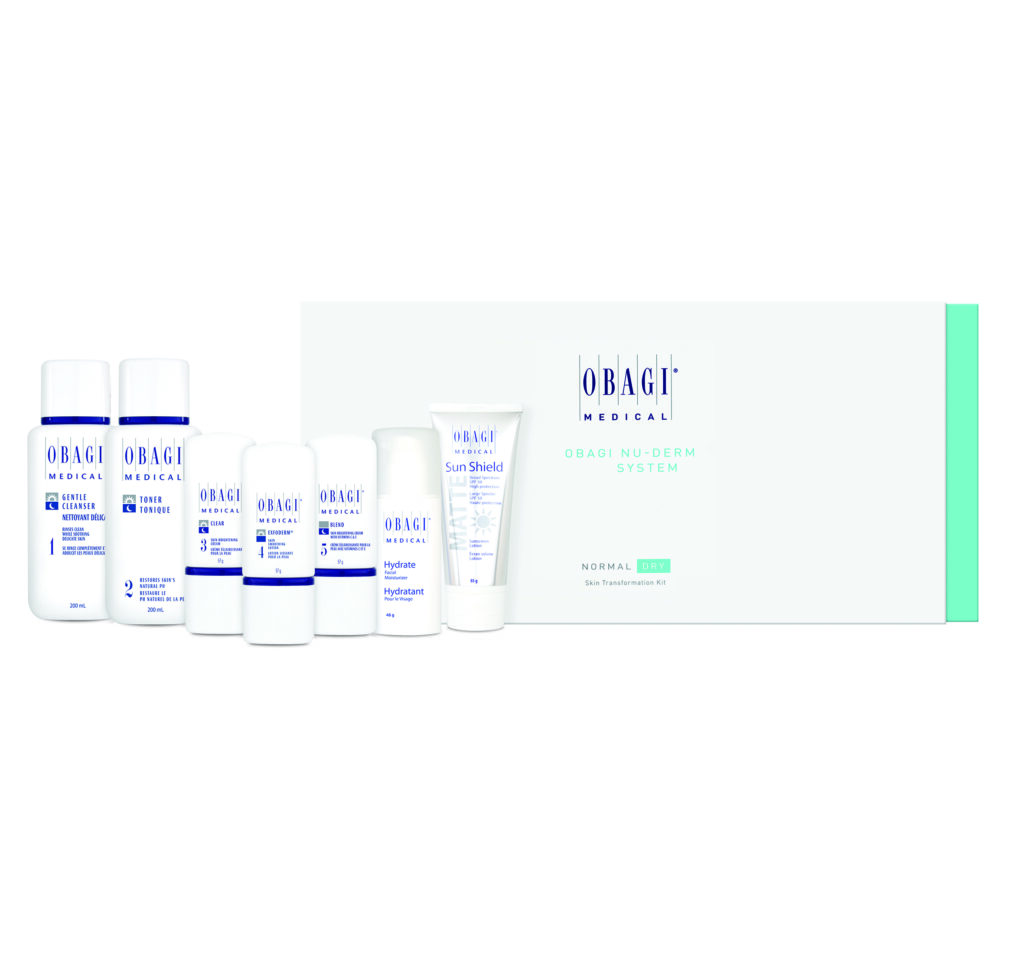
2. Anti-wrinkle injections
There are a number of aesthetic injectable treatments that can help you improve skin texture and tone, in addition to boosting collagen production during menopause. Using a combination of anti-ageing injectables, you can make your complexion appear smoother and plumper.
Botulinum toxin (Botox) is great to soften deep lines in the upper part of the face while dermal fillers containing hyaluronic acid, are best to replace lost volume in the skin and reduce sagginess.
You can learn more about Botox and dermal fillers on my blogs – How does Botox work? and Where you can have dermal filler.
Another amazing injectable treatment for ageing skin is Profhilo. Profhilo is made from hyaluronic acid and designed to treat skin that’s losing its elasticity and firmness. Unlike Botox, it doesn’t freeze your muscles but acts as a powerful moisturiser, which gets injected under the skin to boost its hydration and as a result, improve its texture.
You can find more information about Profhilo and its incredible benefits here.
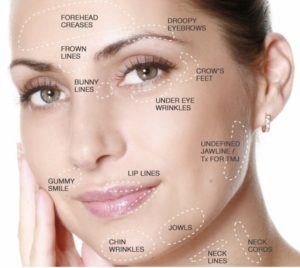
3. Sunscreen
80% of skin ageing is the result of sun damage. Adopting a good sun protection regime not only is going to help you prevent future skin damage but also reverse some of the damage already done.
During menopause and after, your skin is at higher risk of developing sun damange and skin cancer. It is therefore essential that you shield it from the sun’s harmful ultraviolet (UV) rays with a 30+ sunscreen.
As menopause can cause your skin to become a lot more sensitive, you may want to consider a sunscreen product which is gentle to skin.
Mineral sunscreens offer a high level of protection from both UVA and UVB rays and are less likely to irritate your skin than chemical sunscreens. They contain titanium dioxide and zinc oxide and are naturally hypoallergenic, meaning they are a lot kinder to skin suffering from rosacea or other skin conditions characterised by excess redness.
Obagi has a fantastic range of sunscreens, formulated not just to protect skin from the sun but also to prevent signs of ageing and preserve skin health overall.
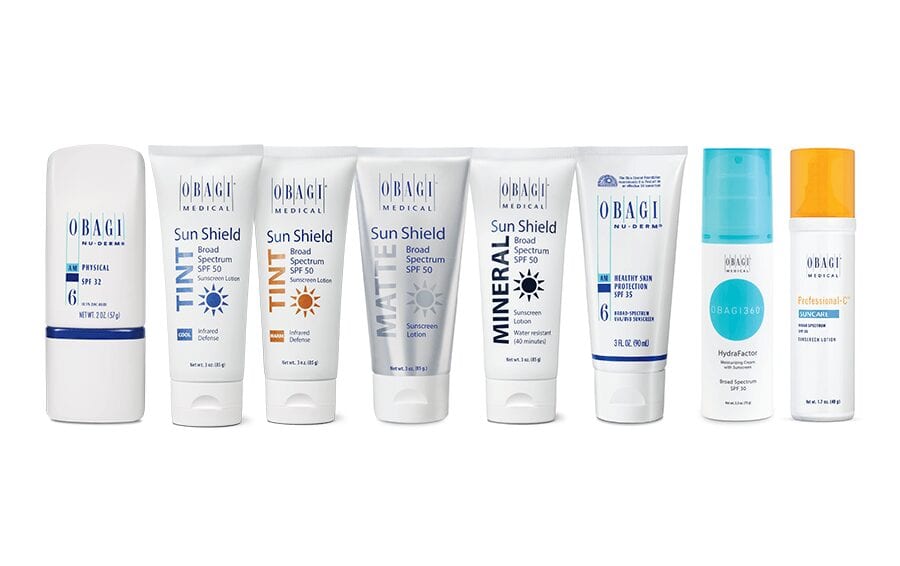
If you want more information about sunscreens, read it here on my blog, Everything you need to know about sunscreen. You can also shop for sun protection here.
4. Healthy lifestyle
A healthy lifestyle which includes regular exercise, a varied diet, avoiding smoking altogether, drinking in moderation and maintaining a healthy body weight can help support your skincare regime and aesthetic treatments and also reduce the severity of menopausal symptoms.
The decrease of oestrogen levels in your body can bring changes to the cardiovascular system, increasing the risk of heart disease and strokes.
It can also affect bone density, making them weaker and more susceptible to breakage. Getting enough vitamin D and calcium in your body will prevent your bones from becoming thin and weak.
In addition, changes in your diet such as cutting down on saturated fat, reducing salt intake, regularly consuming fish and eating high fibre and wholegrain foods can help you maintain not just a healthier bodyweight, but also a younger-looking, more glowing complexion.

So all-in-all, there is lots you can do to boost your skin’s health during and after menopause!
If you are going through menopause and your skin is causing you some concerns, you can book a consultation here to find out more on how I can help you to tackle these changes and restore its health.
